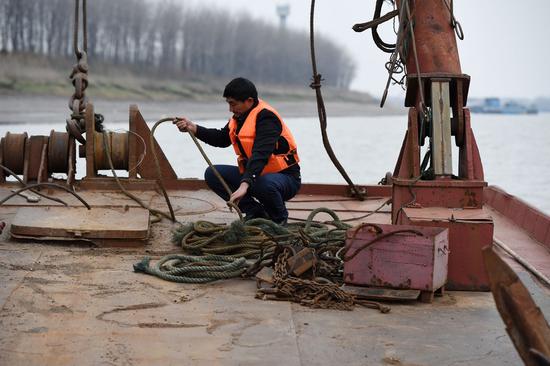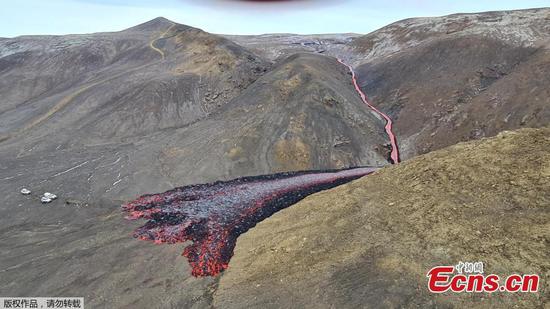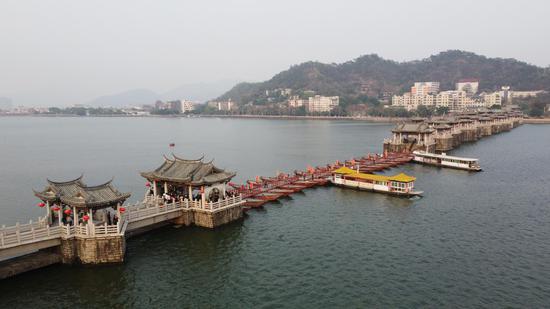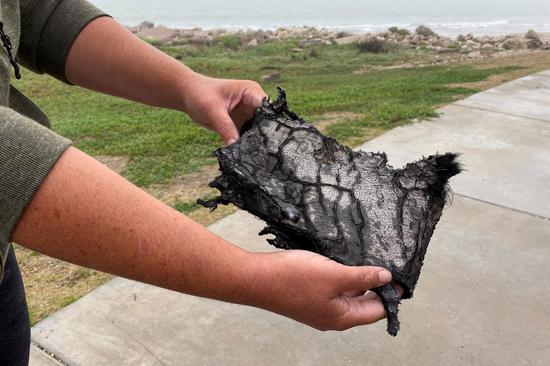
Ex-fisherman Wang Gende arranges ropes on an engineering boat in Anqing, east China's Anhui Province, Dec. 16, 2020. (Xinhua/Zhou Mu)
Moving ashore
Wang's family has been fishing for generations. In the past decades, 55-year-old Wang personally experienced the depleting fishing resources of the Yangtze.
"In the 1980s, we could catch over 50 kg of fish a day, and many were big. Yet the number has slumped to less than 10 kg, and some species, like pufferfish, have been absent from our nets since 2000," Wang recalled.
In recent years, the annual catch from the Yangtze has fallen to less than 100,000 tonnes from more than 420,000 tonnes in the 1950s, accounting for only 0.32 percent of China's total freshwater aquatic products.
As early as 2019, Wang and 587 other fishermen in the village bid farewell to their fishing boats. "Our boats were dismantled, and the government offered us subsidies of some 170,000 yuan (about 26,000 U.S. dollars) and social security services," said Wang.
According to the Ministry of Agriculture and Rural Affairs, 231,000 fishermen on 111,000 boats have to date relinquished their nets in ten provincial regions along the river.
Meanwhile, an annual number of over 5 billion captive-bred fish fries have been released into the river, said the ministry.
"Now there are no fishing boats on the river, and sometimes I can see people releasing fish fries in the river. They're good signs, showing the recovering biodiversity," said Wang.


















































